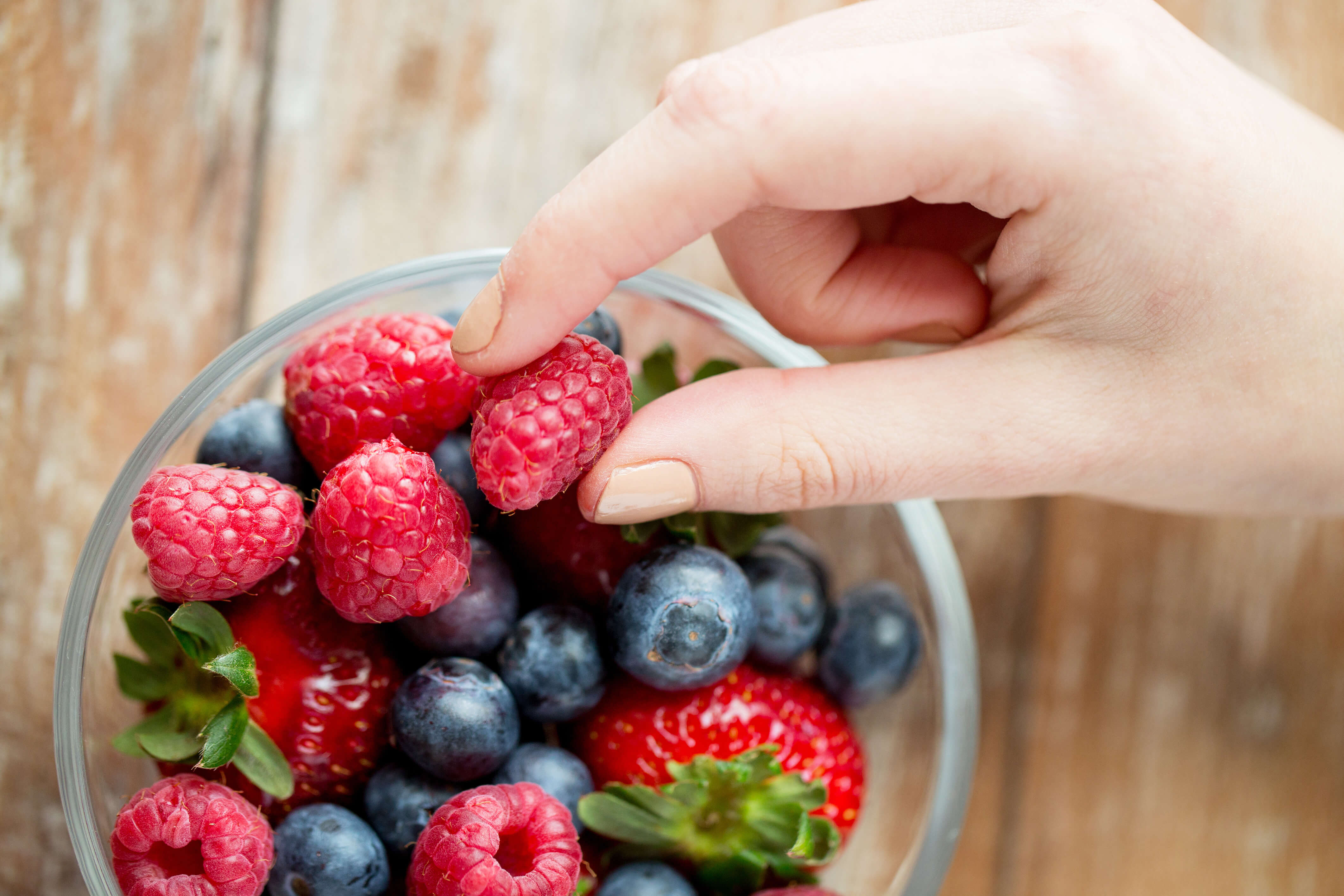Are you confused about whether or not you can eat fruit on a keto diet?
If so, this article is for you.
There is a lot of conflicting information out there about fruit on a ketogenic diet. But don’t worry, we’re here to set the record straight.
The Truth About Fruit
Fruit is often touted as healthy. In fact, the phrase “fruits and vegetables” has led many to believe that the two food groups are practically synonymous. This, however, is far from the truth.
Fruits vs. Vegetables
What is the difference between a fruit and vegetable? This is an important question because many fruits are mistaken for vegetables.
According to botanists, a fruit is the seed bearing structure of a plant. A vegetable is every other part of the plant such as the leaves, stems, and roots.
Fruits commonly confused as vegetables include: tomato, avocado, olive, pumpkin, squash, and, cucumber.
Now that you know the difference between fruits and vegetables, we can investigate whether or not fruit is actually healthy.
The Problem With Fruit
Many modern day fruits are loaded with sugar. Due to thousands of years of cultivation by farmers, fruits now have higher amounts of sugar. Since calories were traditionally scarce, more sugar was good. Today, however, obesity is more common in the developed world than malnutrition. That is why the excess sugar in modern fruits can be a serious issue.
The primary sugar in most fruits is fructose. In order for fructose to be used by the body, it must go to the liver to be converted to glucose. As a result, the body will no longer be in ketosis.
Fortunately, this is not the case with all fruits. There are many low carb fruits that you can eat on a ketogenic diet.
8 Keto Friendly Fruits
You want to get the best possible weight loss results on a keto diet. Therefore, you make sure to keep your daily net carbs under 20-50 grams per day. Here are the fruits you can consume and still lose weight and feel great:
1) Avocado
Avocado is probably one of the most popular keto foods. It is full of heart healthy monounsaturated fat from oleic acid. These fruits are a good source of fiber with about 13 grams per fruit.
Avocados come out to be about 4 grams net carbs each.
2) Olive
Olives are another awesome source of healthy fats. Like avocado, they contain heart-healthy monounsaturated oleic acid. They are also great sources of antioxidants including vitamin E. A half cup of olives has about 6 grams total carbs with 3 grams of fiber.
This has them come out at 3 grams net carbs.
3) Cucumber
Cucumber is a very low-carb fruit. This fruit is rich in minerals like potassium, phosphorus, and calcium. They also contain vitamin A, vitamin K, and folate.
1 medium cucumber has about 3 grams net carbs.
4) Lemon
Lemons are a potent source of vitamin C. Due to their electrolyte content, lemons are very hydrating. Due to this, lemon juice is a great addition to water to make it more palatable and to help replenish minerals.
1 medium lemon contains about 4 grams net carbs.
5) Tomato
Tomatoes are a versatile low-carb fruit. You can eat them raw or cooked. Additionally, tomatoes can make a delicious sauce. Make sure to peel your tomatoes to get rid of anti-nutrients like lectins. For some people with issues like arthritis or other auto-immune conditions, it may be wise to avoid nightshades like tomatoes.
1 medium tomato has about 3 grams net carbs.
6) Blueberries
Blueberries are probably closer to what most people would consider as a fruit. They are higher in carbs than the other fruits listed. However, in small amounts, blueberries can still be a great addition to a keto diet. Blueberries are rich in antioxidants which are responsible for their dark blue color. Additionally, blueberries are a source of fiber, vitamins, and minerals.
1/4 cub of blueberries has about 5 grams net carbs.
7) Blackberries
Blackberries are also a rich source of antioxidants. Furthermore, blackberries contain fiber, vitamins, and minerals. Many people use blackberries is low-carb desserts. You can also use them in smoothies and salads.
1/4 cup of blackberries only contains about 2 grams net carbs.
8) Raspberries
Raspberries are a rich source of antioxidants, vitamins, and minerals. They contain ellagic acid which is well-known for its anti-inflammatory properties.
1/4 cup raspberries has about 4 grams net carbs.
Honorable Mentions
Additional low-carb fruits include: bell peppers, plums, limes, coconut, and starfruit.
The Importance of Fiber
It is important to remember that fiber slows down the absorption of sugar in to the bloodstream. Therefore, fruit juices will spike the blood sugar faster. With the exception of lemon and lime, it is always best to eat your low-carb fruits with the fiber included.
Monitor Your Blood Sugar and Ketones
If you are unsure whether or not a certain fruit is taking you out of ketosis, you can always check your blood. You can monitor your blood sugar and blood ketones with affordable meters that can be bought at the drug store or online.
After being in the Keto Zone for awhile, you will be able to feel the difference between burning sugar for fuel and burning fat for fuel. Until you reach that point, testing your blood is the next best option.
Bottom Line
Not all fruit is healthy. Many fruits are loaded with tons of sugar. Too much sugar kicks you out of the Keto Zone. But you can still eat certain fruits on a ketogenic diet! When eaten in moderation, low-carb fruits can be a healthy addition to your weight-loss regimen.

I despise the large over sweet apples. But still miss eating an apple. What about organic SMALL apples?